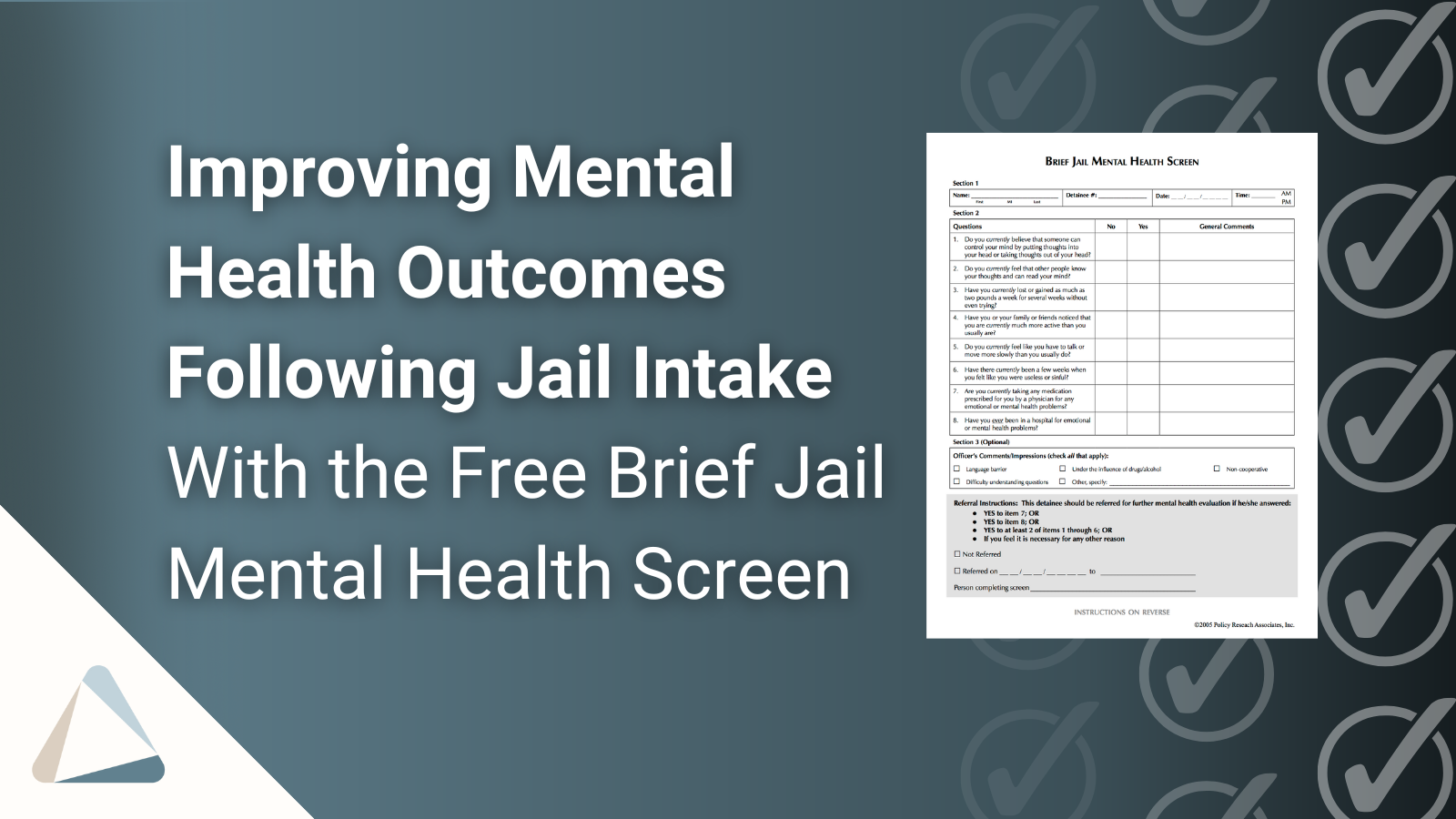The Brief Jail Mental Health Screen (BJMHS) is a quick, easy-to-use, and free screening tool designed for jail intake and booking processes. This powerful tool enables jails and detention centers to swiftly identify individuals who may require further mental health evaluation. Specifically, the BJMHS screens for signs of serious mental illnesses, including schizophrenia, bipolar disorder, and major depression, ensuring that those entering detention receive timely assessment and appropriate care. Read on to learn how it can enhance local criminal legal systems’ outcomes.
What problem does the BJMHS address?
Jails often serve as de facto mental health facilities, with many people who are detained experiencing untreated or undiagnosed mental health conditions. Traditional intake processes may not effectively identify these individuals, leading to inadequate care and exacerbation of mental health issues. The BJMHS addresses this gap by providing a quick and reliable method to screen for serious mental illnesses during the booking process. In a validation study involving over 10,000 detained people, approximately 11% were referred for further mental health assessment based on BJMHS results.
How does the BJMHS enhance efficiency and responsiveness in the criminal legal system?
The BJMHS streamlines the identification of people booked into jail who may need further evaluation and mental health services, allowing for timely referrals and interventions. Its brevity—comprising only eight yes/no questions—means it can be administered in under 3 minutes by correctional officers with minimal training. By integrating mental health screening into the intake process, correctional facilities can better allocate resources and more appropriately address mental health conditions among detained individuals. The BJMHS is an important tool in improving correctional responses to the needs of individuals in custody.
Who can use the BJMHS, and how is it implemented?
The BJMHS is designed for use by jail personnel during the intake or booking process. It requires no specialized mental health training, as detailed instructions are provided to guide administration and interpretation. The tool is freely available for download, making it accessible to facilities seeking to enhance their mental health screening procedures without incurring additional costs. By enabling non-clinical staff to conduct initial screenings, the BJMHS facilitates early identification and referral, which is crucial for timely mental health interventions. The process is quick and is easily incorporated into the booking process.
How does the BJMHS improve outcomes for individuals and communities?
Early identification of mental health conditions through the BJMHS allows for prompt referrals for assessment, which can lead to better health outcomes for individuals and reduce the likelihood of recidivism. By addressing mental health issues proactively, the tool contributes to the overall well-being of detained individuals and supports their successful reintegration into the community. Furthermore, by improving the management of mental health within the criminal legal system, the BJMHS helps alleviate the burden on correctional facilities and promotes public safety.
The Brief Jail Mental Health Screen is a practical, efficient, and accessible tool that enhances the capacity of the criminal legal system to identify and respond to the mental health conditions of people who have been detained. Its implementation supports better individual outcomes and contributes to the health and safety of the broader community.
This blog post was developed with the assistance of generative artificial intelligence.


